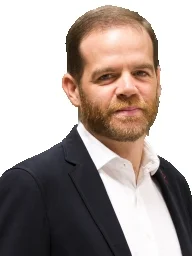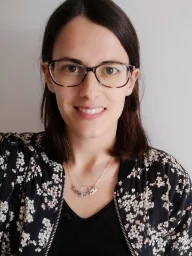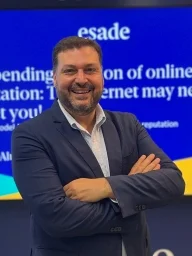Esade beats the record of women’s participation in its Full Time MBA
Esade’s Full-Time MBA – the best programme in Spain and Europe for professional women, according to the Financial Times – has achieved a female enrolment rate of 39% this year. This percentage – which exceeds the global average for MBA programmes reported by the Graduate Management Admission Council (36%) – is comparable to the female enrolment rates in the MBA programmes of Wharton (44%), Harvard (43%) and Stanford (41%) and underscores Esade’s commitment to developing and strengthening women’s executive skills and enabling them to become high-impact business leaders.
Also this year, Esade’s Executive MBA has achieved a female enrolment rate of 43% – thirteen percentage points above the global average – making this the second consecutive year that the programme has welcomed an incoming class that is more than 40% female.
‘In Western universities overall, the percentage of female students is nearly equal to that of male students. However, women’s presence in business schools is more limited in programmes targeting older, more experienced professionals,’ commented Luis Vives, Vice-Dean of Programmes at ESADE. The increase in female enrolment in Esade’s various MBA programmes is, he argued, the result of the school’s ‘obsession with training executives who are capable of breaking trends and creating new futures’. He added: ‘Our efforts in this area are channelled through initiatives such as the Esade MBA Women in Mentorship Program, our support for the Esade Women in Business Club, and our inclusion of women in case studies.’ By way of explanation, Vives added: ‘The main characters in business case studies are usually men, so it is very important for successful women to also be represented.’
Sophie van Gool (Full-Time MBA 2019), former President of the Esade Women in Business Club, provides an example of precisely this sort of success. After graduating from Esade, Van Gool founded the consulting firm Moonshot Diversity & Inclusion with the aim of promoting greater diversity and inclusion in the workplace. ‘Esade has created a diverse and inclusive environment where men and women can explore gender-inequality issues and discuss how to address them, and later continue these discussions in their workplaces across the globe,’ commented Van Gool, who was recently named one of the world’s most disruptive entrepreneurs by the prestigious publication Poets&Quants. ‘Unfortunately, gender parity is still rare in MBA classrooms all over the world. Studies show that one of the reasons is women’s lack of access to financing. That’s why Esade supports female students by providing specific scholarships and by forming part of the Forté Foundation, which supports women in business schools.’
Financial aid and networking
The programme mentioned by Van Gool is known as the Forté Fellowship Program Through this initiative, Esade selects students in its Full-Time MBA to receive scholarships of up to $20,000 and attend gatherings organised by the Forté Foundation all over the world. In addition to this network made up of the world’s most prestigious business schools, a number of scholarships are also available, including the Women of the World Scholarships, the Esade Women in Business Scholarship and the Scholarship for Women Leaders. These awards are granted each year thanks to the efforts of the Esade Engagement and Donor Relations, department, which channels financial aid provided by more than 600 alumni, faculty, students, companies and foundations, in a clear show of support for female talent.
But talented women are attracted to Esade for reasons that that go beyond the classroom. Another factor driving the record level of female enrolment in the Full-Time MBA is the Esade Careers team’s focus on diversity. The activities organised by this department include the Women in Banking Breakfast, an intersectoral gathering hosted in collaboration with Citi, Deutsche Bank, the European Investment Bank, Goldman Sachs, HSBC, JP Morgan, Morgan Stanley and the Blackstone Group, which was attended by more than 40 female students; participation in the Aspire Programme; the first Women’s Boot Camp, organised in collaboration with Accenture, Bain & Co. and BCG; and collaboration with major companies such as PepsiCo and Sodexo.




